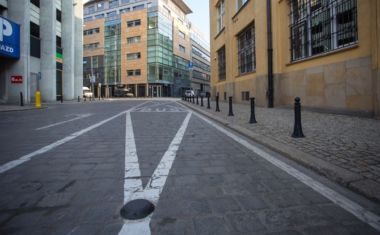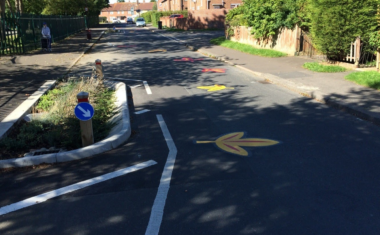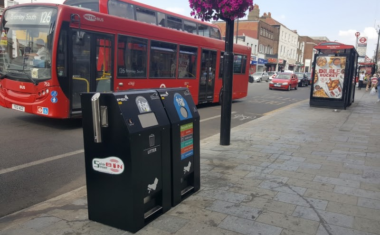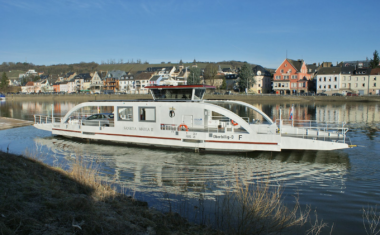Autolib’
- 1682
- 9 min to read
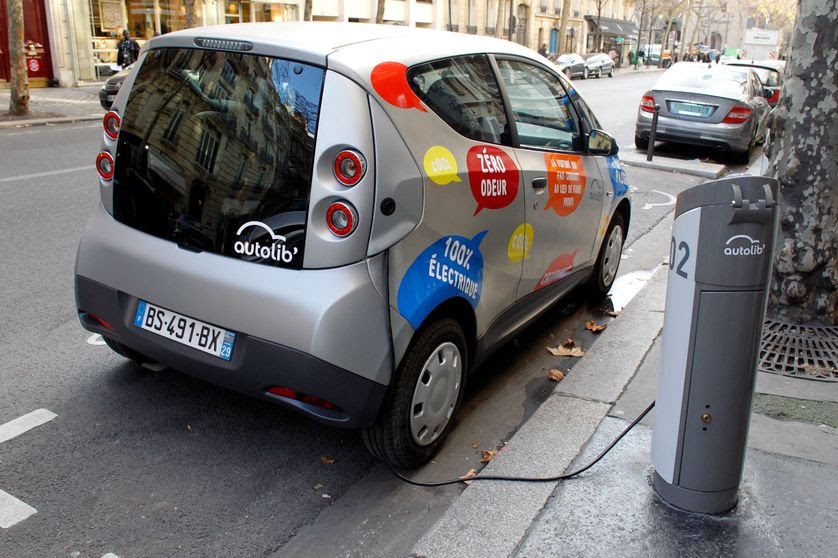
About the city. The City of Paris, together with the Ile-de-France region, became the first major European city to successfully launch a public electric car-sharing program.
Goal
The aim of the project is to lower greenhouse gas emissions and to reduce traffic congestion along with the number of privately-owned cars.
Implementation period. Autolib was launched in December 2011 and had been operating until 2018.
Fact
Paris, together with the Ile-de-France region, has a total population of over 10 million inhabitants. It is estimated that there are about 330 cars per 1000 inhabitants, and the average daily mileage of each car is up to 4 kilometres. To meet France’s commitment to reduce greenhouse gas emissions by 20% by 2020, it was necessary to reduce road congestion along with the number of private cars (which are overwhelmingly parked) and look for more affordable and sustainable mobility alternatives.
Solutions
The Autolib system was a continuation of the Paris-based successful Velib’ bike-sharing scheme, which began operating in 2007. The electric vehicles for the project were delivered by the Bolloré industrial group as the result of cooperation with the Italian automotive company Pininfarina.
Construction of the Autolib stations began in the middle of 2011, and 66 Bolloré Bluecars were deployed during a two-month pre-trial period from October to December 2011. The system came into operation on 5 December 2011, with an initial fleet of 250 Bluecars and 250 Autolib’ rental stations serving the city of Paris and 18 surrounding communities, grouped into a syndicate of associated collectives “Autolib’ Métropole”.
The project consists of a full electric car-sharing service, which includes an interconnected on-street infrastructure and an IT network system supporting it. The Bluecar is a four-seat bubble-shaped car with three doors. The car is equipped with a lithium-metal polymer battery, it is able to drive up to 250 km and reach a speed of up to 130 km/h. Charging the car takes 4 hours.
Users could choose from several rental packages, with a 30-minute fee ranging from 4 to 8 euros depending on the rental plan. To join the service, users had to go through an online registration process, during which their passport, driver’s licence and credit card are scanned and registered. After confirming the details, an electronic membership card is issued. A membership card is a badge that allows unlocking the car or connecting it to a charger. The car could be booked online or via the mobile app, picked up for use from any rental station and returned to any other rental station. The on-board computer and GPS system gave the driver all the necessary information from battery life to the location of the nearest Autolib’ charging point or parking lot and how to get there. In addition, it allows tracking the vehicle using the systems’ operation centre.
Challenges
- At the time of the scheme’s inception, the availability of cars was a problematic issue, as more Parisians signed up for the service than expected. Moreover, by early January 2012, up to 40 of the 250 vehicles in the initial fleet had been temporarily decommissioned to address vandalism or malfunctions.
- On October 14, 2013, a Bluecar was destroyed by fire while charging at an Autolib kiosk in Paris, the fire then spread to another Bluecar. A police investigation was subsequently conducted to determine the cause of the fire. According to Bolloré, the real-time telemetry monitoring system did not record a problem with the thermal runaway of the car’s battery when the fire started. The company attributes the origin of the fire to an external cause, probably vandalism. Bolloré said a total of 25 Autolib’ Bluecars have burned since the scheme inception, with most of the incidents found to be attributed to vandals.
- In December 2009, the car rental company Europcar bought the City of Paris to court, claiming that the name Autolib’ is plagiarism and unfair competition from the city. Europcar is the owner of the brand of the subscription car rental service “Autoliberté”, which has been operating since 2001. The case was dismissed in March 2011 by the High Court of Paris, and Europcar decided to appeal. On 30 June 2012, the Paris Court of Appeal overturned the High Court’s decision and ruled that Autolib’ had to change its name within a month because it had violated trademark laws. The ruling implied that the name should be changed on all 1,800 Autolib cars, docking stations and subscription cards, and also required rewriting all advertising of the scheme. Following this decision, Paris and Europcar began negotiations on an agreement to resolve the conflict with the brand. In November 2012, an agreement was reached to retain the Autolib’ brand. Europcar agreed to waive the enforcement of the court on the condition that the City of Paris will be the owner of the Autolib’ brand and in exchange for free advertising of the Europcar Autoliberté service. The agreement was signed for three years.
Team
City of Paris, 45 municipalities in the Paris Metropolis and region of Île-de-France, BolloréGroup enterprise
Timeline
-
Starting in Paris, Autolib has expanded its business to Lyon and Bordeaux. Bolloré also signed agreements to start operating Autolib’ branches in London and Indianapolis in 2015, Turin in 2016 and Singapore in 2017.
-
As of July 3, 2016, 3,980 Bluecars were registered for the service, and the scheme had over 126,900 registered subscribers; in addition, Autolib offered 1,084 electric vehicle stations in the Paris agglomeration with 5,935 charging points.
-
In May 2012, Vincent Bolloré, head of the Bolloré Group, stated that he expected Autolib’ to become profitable by 2018, but the service ended on 31 July 2018 and was replaced on 2 December 2018 by the municipal service to manage 1,000 electric charging stations in Paris, and the City of Paris has entered into agreements with several car-sharing companies: three free-floating operators and four additional participants in the new Mobilib’ service.
If you notice an error or inaccuracy in our editorials, please email [email protected] so we can look into it.

